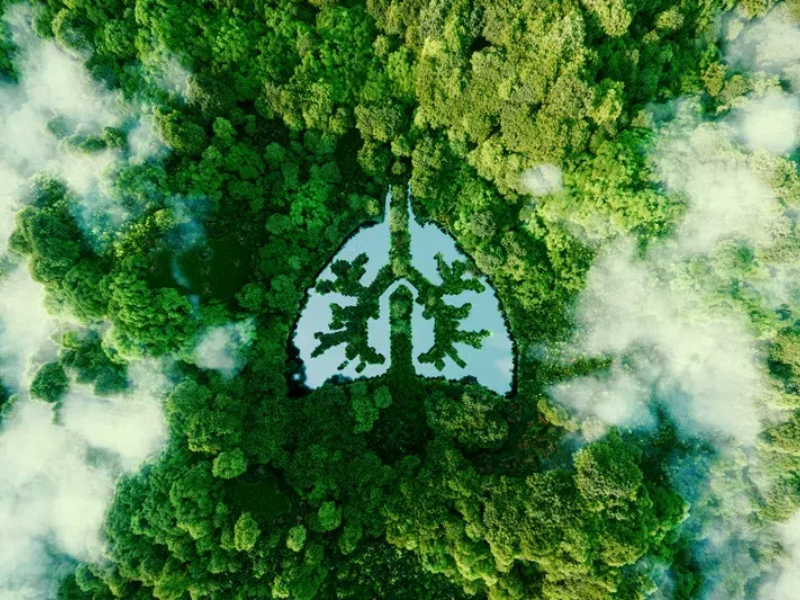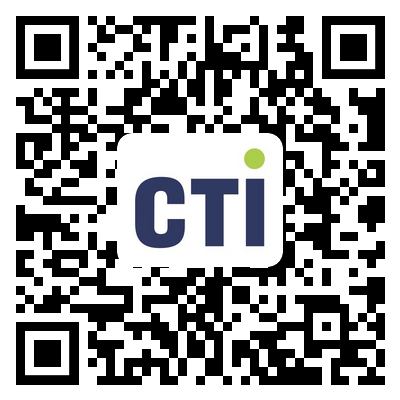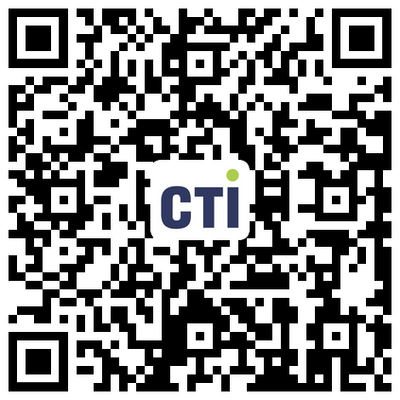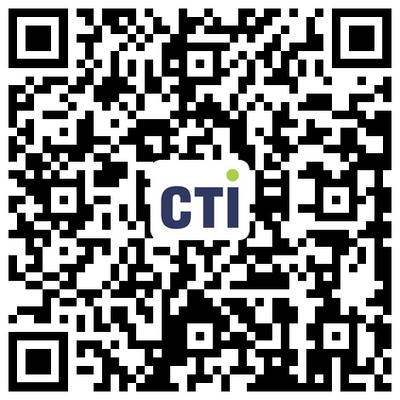-
 Overview
Overview
Centre Testing International Group Co., Ltd. (CTI) is a market leader in testing, inspection, certification, calibration, audit, training & technical services; building trust between governments, enterprises, and consumers.
-
 Sustainability
Sustainability
By building a full value chain ESG governance system covering the strategic decision-making level, management execution level and business operation level, it actively practices penetrating management of ESG risk and opportunities, empowering sustainable development across the industry chain.
-
 Our service
Our serviceCentre Testing International Co., Ltd. (CTI) is the pioneer and leader in the TIC Industry which provides one-stop solutions on testing, inspection, certification, calibration, audit, training & technical services.
-
By Industry
Our service capabilties cover the upstream and downstream of the supply chain including textile and apparel,toys,electronic appliances,medical health,food...andother industries.
-
 Environment
Environment
-
 Raw Material & Fuel Chemicals
Raw Material & Fuel Chemicals
-
 Textiles, Apparel, Footwear & Accessories
Textiles, Apparel, Footwear & Accessories
-
 Food & Agricultural Products
Food & Agricultural Products
-
 Cosmetics, Personal Care & Household Chemicals
Cosmetics, Personal Care & Household Chemicals
-
 Building Materials&Construction Engineering
Building Materials&Construction Engineering
-
 Electronic & Electrical Appliances
Electronic & Electrical Appliances
-
 Toys, Furniture & Home Decoration
Toys, Furniture & Home Decoration
-
 Industrial Equipment & Manufacturing
Industrial Equipment & Manufacturing
-
 Rail & Aviation
Rail & Aviation
-
 Automotive & Spare Parts
Automotive & Spare Parts
-
 Pharma and Medical Services
Pharma and Medical Services
-
 Maritime Vessel Compliance Testing
Maritime Vessel Compliance Testing
 By Industry
By IndustryOur service capabilties cover the upstream and downstream of the supply chain including textile and apparel,toys,electronic appliances,medical health,food...andother industries.
-
-
 Specialty
SpecialtyComprehensively guarantee quality and safety, promote compliance and innovation, demonstrate brand competitiveness, and achieve higher quality, healthier, safer, and greener sustainable development.
-
 Management
ManagementWe have established a clear governance structure in accordance with listing requirements and national regulations and policies to deal with internal and external challenges and achieve sustainable development.
-
 Information DisclosureWe are committed to establishing normal and effective two-way communication with shareholders and investors. We have established a complete information disclosure mechanism to convey information to shareholders in a timely manner.
Information DisclosureWe are committed to establishing normal and effective two-way communication with shareholders and investors. We have established a complete information disclosure mechanism to convey information to shareholders in a timely manner.
-
 Talents Policy
Talents PolicyEnsuring the basic rights and benefits of employees;
Providing professional skills training to promote employees’ growth;
Carrying out various kinds of activities to balance employees’ work and life.
-
 RecruitmentWelcome to join CTI family! We are providing a platform for you to show your talents and achieve your career aspiration.
RecruitmentWelcome to join CTI family! We are providing a platform for you to show your talents and achieve your career aspiration.
As an independent third-party certification body, CTI Certification Co., Ltd. (CTI Certification) has received authorization from Verra and GS, and GCC to provide you with comprehensive validation and verification services.

◉ Service Background
With the ambition of the Paris Agreement set at 'well below 2 degrees' temperature rise, business sector need more robust climate action. For enterprises prioritizing climate mitigation, the carbon offset market is a flexible mechanism that compensates for unavoidable GHG emissions. Verified Carbon Standard (VCS), Gold Standard(GS), and the Global Carbon Council (GCC) are working towards developing stringent but simplified standards for credits in the carbon offsetting market. The projects developed under these standards are designed to align with the Clean Development Mechanism (CDM) and are subject to independent auditing by the approved VVBs of those schemes. One carbon credit represents reducing or removing one tonne of carbon dioxide or its carbon dioxide-equivalent (CO2e).
As an independent third-party certification body, CTI Certification Co., Ltd. (CTI Certification) has received authorization from Verra and GS, and GCC to provide you with comprehensive validation and verification services.
◉ Scheme Introduction
VCS Introduction
VCS, established by Verra in 2005, is a widely used GHG credit program in the world, which has collectively reduced or removed more than 500 million tonnes of carbon and other GHG emissions from the atmosphere. The VCS Program can be developed under multiple methodologies complying with its rules or other approved GHG programs, including CDM methodologies and Climate Action Reserve (CAR) protocols. VCS projects must undergo a rigorous assessment process. Once certified, these projects proponents are eligible to issue Verified Carbon Units (VCUs), which can be traded in Verra Registry and Carbon Trade eXchange (CTX) to support climate change mitigation activities or acquire revenues.
CTI Certification can provide validation and verification services, respectively, in VCS projects.
During validation, CTI Certification checks whether a project meets all rules and requirements from the Verra Programs. Once validation has been concluded, the proponent may submit the project for registration with the respective program.
During verification, CTI Certification confirms that the outcomes set out in the project documentation have been achieved and quantified according to the requirements of the respective standard.
The below 15 sectoral scopes are eligible in VCS projects at present. CTI Certification is approved to provide validation and certification services in all 15 sectoral scopes.
1. Energy (renewable/nonrenewable)
2. Energy distribution
3. Energy demand
4. Manufacturing industries
5. Chemical industry
6. Construction
7. Transport
8. Mining/mineral production
9. Metal production
10. Fugitive emissions – from fuels (solid, oil, and gas)
11. Fugitive emissions – from Industrial gases (halocarbons and sulfur hexafluoride)
12. Solvents use
13. Waste handling and disposal
14. Agriculture, Forestry and Other Land Use (AFOLU)
15. Livestock and manure management
GS Introduction
Gold Standard (GS) was established in 2003 by WWF and other international NGOs to ensure projects that reduced carbon emissions featured the highest levels of environmental integrity. It focuses on sustainable development in addition to GHG emission reductions, which is considered one of the most stringent standard for carbon credits. For projects eligible for GS, they must conduct assessment of “additional”, confirm to a minimum of three Sustainable Development Goals (SDGs) and ensure that projects benefit neighboring communities. GS Verified Emissions Reductions (VERs) can be traded directly on the Gold Standard Registry or the CTX. CTI Certification is an accredited auditing agency for Gold Standard projects and provides validation and verification services in GS projects.
There are multiple options for certification:
1. Originate a project.
2. Transition an existing project from the UN CDM or other standards to the Gold Standard.
3. Certify the sustainable development impacts of a project issued under another standard.
Project scopes include:
Energy
Renewable Energy – such as solar, biomass, biogas and liquid biofuels (if they produce electricity), wind, geothermal, hydro.
Energy Efficiency – industrial, domestic, transportation, public sector, agricultural sector and commercial sector.
Waste Handling and Disposal – all waste handling activities that deliver an energy service or a usable product with sustainable development benefits (e.g., composting).
Short-Lived Climate Pollutants – such as Black Carbon
Land Use & Forests
Afforestation projects - that establish a forest in an area that previously was not forested.
Reforestation projects - that re-establish a forest, either naturally or by direct seeding or planting.
Agriculture programs - that focus on increasing farm productivity while lowering the impact of the key drivers of deforestation. Sustainable Agriculture land management practices and soil carbon-related.
Water
Programs that supply, purify, and conserve water – including WASH projects and sustainable sugarcane initiatives.
GCC Introduction
The GCC Program, with particular emphasis on low-carbon development in the Middle East and North Africa (MENA), is the first voluntary carbon offset program to contribute to realizing the vision of a sustainable and low-carbon world economy. Entities issue Approved Carbon Credits (ACCs) under stringent but simplified GCC standards after rigorous monitoring and independent verification.CTI Certification, as a professional third-party certification body, is approved by GCC to serve as the verifier for GCC projects.
GCC Project owner is responsible for the following:
• Signs contract for selling the Approved Carbon Credits (ACC's)
• Implements projects
• Makes project submission
• Monitors Project
• Receives carbon revenue against the Carbon Credits issued to project supporter
GCC Project Supporter is responsible for the following:
• Ensures that the project type is the one that he/she wants to support
• Signs contract for buying the carbon credits (ACCs) over a pre-defined period.
• Ensures that due process is implemented for project approval and ACC issuance.
• Receives ACCs issued by GCC in its account and provides carbon finance against issued ACCs.
The realization of the Paris Agreement requires the joint efforts of the whole society, as a professional third-party certification body in the field of low-carbon development, CTI certification will use its professional and technical capabilities to support global enterprises to participate in the carbon neutrality action.




































 粤公网安备 44030602000441号
粤公网安备 44030602000441号